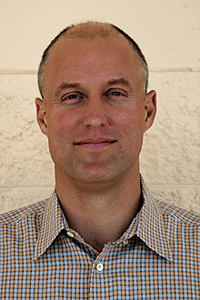In what is beginning to take the form of an annual ritual, the HME industry and the Center for Medicare and Medicaid Services are once again engaged in a pitched debate over the determination of an appropriate dispensing fee for nebulized inhalation medications in 2006. Unfortunately for everyone involved, it is a debate defined by the marked absence of the attributes associated with wisdom.
Despite the modestly arcane nature of the topic, the stakes are very high - an under calculation by CMS risks precipitating an access crisis for the 1 million-plus Medicare beneficiaries who rely upon nebulized inhalation medications to manage their COPD
Under calculating reimbursement needs will also have serious and long-lasting consequences for the HME provider community.
While it is still too early to understand the full impact of the change in 2005 to average selling price plus 6% and the current $57 dispensing fee, the transition has knocked much of the HME industry on its heels. Reimbursement for the two most commonly dispensed inhalation medications, albuterol sulfate and ipratroprium bromide, were reduced by 89% - a staggering drop by any measure. Compounding the challenge has been a steep, concurrent rise in labor, fuel and healthcare costs thus far in 2005.
Numerous small and mid-sized independent HME owner-operators have concluded the current reimbursement rates are inadequate. Many local, service-oriented providers are seeking an orderly exit by transitioning their patients to alternative HME providers through acquisitions. Some are simply shuttering their pharmacy businesses outright.
For a regional provider of scale such as Pacific Pulmonary Services, managing through the recent cuts has been no less challenging. We have re-evaluated every facet of our pharmacy and field operations to determine if we can improve efficiency and reduce costs enough to maintain our own pharmacy offerings in accordance with the standards of service mandated by Medicare.
Ominously, in its proposed 2006 physician fee schedule rule released on August 1, CMS has signaled that further cuts are likely when they state, "We intend to establish a dispensing fee amount for 2006 that is adequate to cover the costs of those services that appropriately fall within the scope of the dispensing fee, and think it is likely that this fee will be lower than the 2005 level." For PPS and many others in the HME community, further reimbursement cuts in 2006 will render our business refinement efforts moot.
As the CEO of an organization only two financial quarters into adjusting to an 89% reduction in reimbursement - my reaction at this juncture is one of genuine alarm. CMS appears to be rushing to judgment that further cuts are warranted, before it has had sufficient time to measure the impact of this year's draconian cuts or collected any new industry cost data or service analysis. Thus the basis that CMS will use for its considered reduction of the dispensing fee remains a mystery.
Ironically, CMS is considering further cuts as growing numbers of suppliers are abandoning inhalation pharmacy services as the result of this year's cuts. At the same time the agency appears to be appropriately and genuinely concerned about ensuring continued access to inhalation therapies for Medicare beneficiaries. Another cut will serve only to undermine, not preserve access. We can't have both.
At the crux of the debate is an effort by CMS to limit the scope - at least on paper - of activities that are eligible for reimbursement under the dispensing fee. In determining the $57 fee for 2005, CMS worked backward from the $68.10 recommendation contained in the comprehensive 2004 Muse & Associates survey by eliminating payment for bad debt, sales and marketing and an explicit 7% profit margin. The current NPRM suggests CMS is considering further constricting the scope of activities it believes should be covered under a dispensing fee in 2006, thereby creating the rationale for lowering the fee from $57.
This approach demonstrates a fundamental lack of understanding that the breadth, depth and value of the patient support services needed to provide inhalation medications to Medicare beneficiaries in the home are either inherent in the home-bound nature of the patients or are mandated by Medicare and state pharmacy laws and regulations, or both.
Simply put, HME providers will not be able to cease performing these activities simply because CMS arbitrarily decides that they are not included in the dispensing fee. The activities are required by law, regulation and policy in order to ensure the safe and effective delivery of inhalation therapies to beneficiaries. Taken together, they reflect the standard of care for patients who require inhalation therapy to manage their COPD in the home setting. Selectively choosing to pay for some of these activities while excluding the remainder will render providers unable to maintain mandatory regulatory compliance while covering their costs - leaving them with little choice but to exit the business entirely.
At this juncture, it is reasonable to ask, "Where do we go from here?"
To avert a wholly unnecessary crisis predicated on incomplete data, misunderstanding, and misinformation, what is urgently needed is a healthy dose of common sense and judgment on both sides of the issue. The HME industry must continue to work in good faith with CMS and provide them with as much additional data and information as possible in the coming weeks to address the questions posed in the NPRM. For it's part, CMS must signal that it is sincere in its desire to maintain beneficiary access to inhalation medications in 2006 and recognizes that the financial stability of HME providers is a prerequisite to success.
In the end, a little wisdom will go a long way.
---
Peter Kelly is president of Pacific Pulmonary Services in Novato, Calif.




Comments